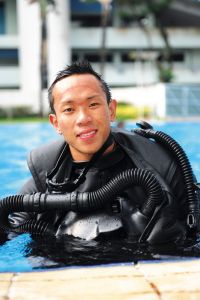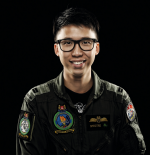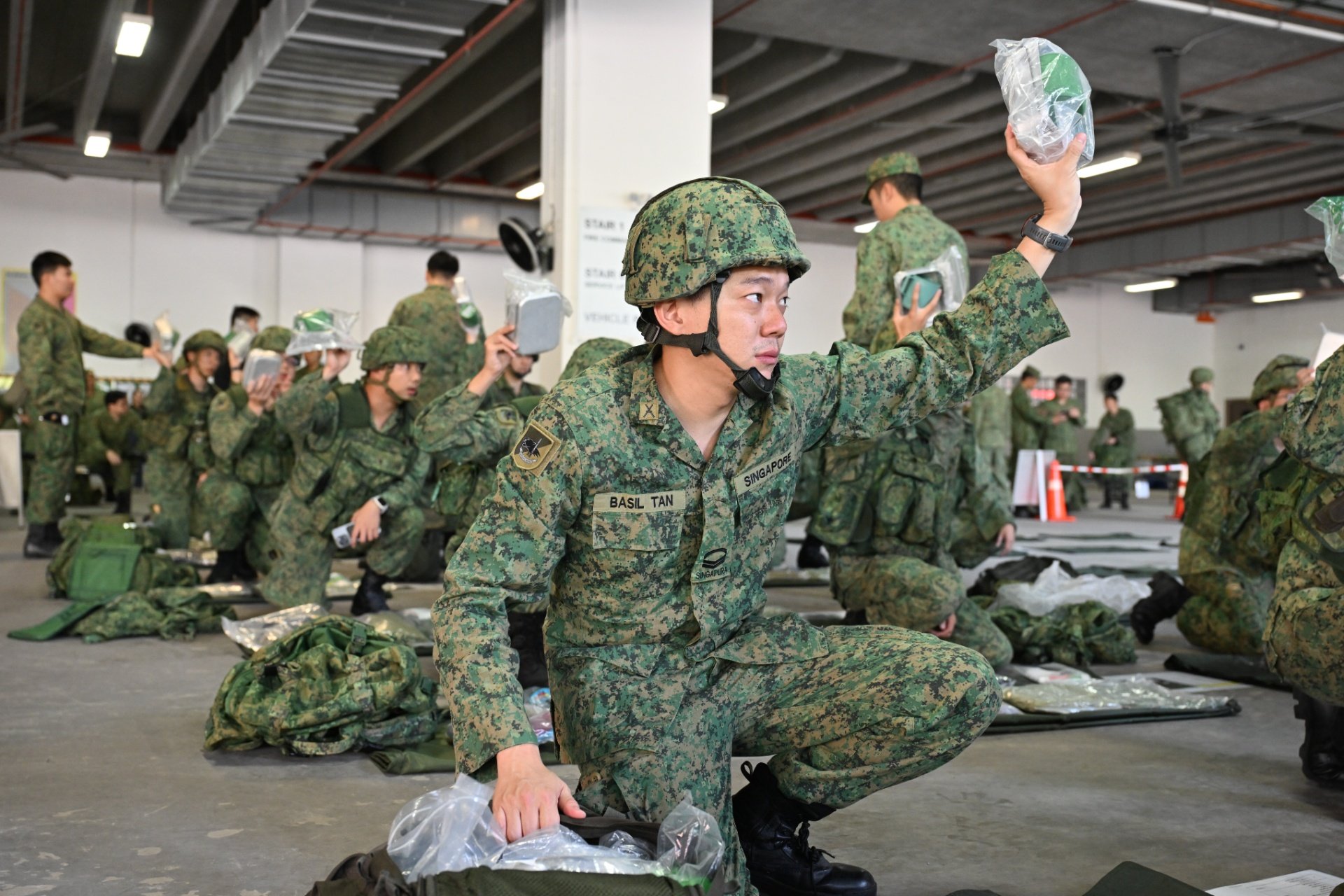OPS & TRAINING
STAYING FOCUSED
10 Jun 2011
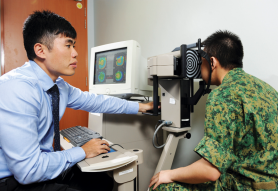
With myopia affecting more than 70 percent of Singaporeans, PIONEER looks at how the Singapore Armed Forces (SAF) addresses this issue in the military.
His eyesight was poor, but his vision was to be a naval diver. For Captain (CPT) Lee Wei Min, being 400 degrees myopic in each eye meant he was an unlikely candidate for naval diving - until eye surgery put diving school within reach.
Since 2005, the SAF Vision Performance Centre (VPC) in the Military Medicine Institute has been partnering the National University Hospital (NUH) Eye Centre @ Biopolis to offer corrective eye surgery to Regular servicemen who entered vocations that require good sight. These vocations include the commandos, pilots, Weapon Systems Officers (Fighter) and naval divers.
To date, more than 300 myopic servicemen have benefited from the programme. The scheme is designed to attract and retain talent in the military despite servicemen's short-sightedness.
Besides this specialised programme, the VPC provides unbiased assessments for all Regular servicemen and Defence Executive Officers (DXOs) seeking refractive eye surgery on their suitability. It also refers them, where appropriate, to reputable partner institutions such as NUH and the Singapore National Eye Centre for surgery at highly competitive rates under its Vision Care Programme.
Through this scheme, CPT Lee went from being an Additional Officer on board missile corvette RSS Vigilance, to being a trainee in the Naval Diving Unit. This was after a successful corrective eye surgery, known as photorefractive keratectomy (PRK), last October.
"I need clear vision to carry out missions under water, but I can't wear glasses behind the diving mask, and there s also the danger of wearing contact lenses in the underwater environment," said CPT Lee. "But after surgery, I don t have those problems now."
Better performance
Another who has benefited from the scheme is Lieutenant (LTA) Justin Tay, who was among the first servicemen to undergo PRK surgery in 2005.
During his National Service, he was accepted into the Republic of Singapore Air Force as a pilot in 2005 despite myopia of 500 degrees in each eye, and was subsequently offered PRK surgery to enhance his performance as a pilot.
On the inconveniences of training with spectacles before surgery, the Super Puma helicopter pilot said: "My spectacles used to be a hindrance; It gave me a limited field of vision as my view was sharp only when I was looking through the lenses, and the glasses would slide whenever I did certain manoeuvres in the air."
He added: "After having my eyesight corrected, my peripheral vision has been enhanced, giving me better situational awareness in the air because I can see things clearly from the corner of my eye as well."
Clearer vision
The Vision Care Programme also covers non-surgical solutions to myopia, through the provision of contact lenses and spectacles at corporate rates secured by the SAF Personnel Services Centre with external vendors.
SAF personnel and DXOs undergo eye screening at the Vision Care Clinic in the VPC, and those who need to have contact lenses made or glasses fitted can get it done at the clinic.
According to Senior Lieutenant Colonel (SLTC) (Dr) Gerard Nah, who heads the VPC, the spectacles are specially designed for SAF personnel. They are produced by the Singapore Optometric Association (SOA), and are available at the VPC and participating SOA member outlets.
"The lenses are made of shatter-resistant material, and the spectacles are rugged, light, comfortable and affordable, with a basic pair of up to 200 degrees costing about $40," he said.
More than just providing prescriptions for myopia, the clinic also conducts routine eye checks for SAF personnel and screens them for certain eye diseases.
Mr Edmund Lim, an optometrist who conducts eye screenings at the clinic, said: "Through the eye exam, we can tell if a patient's eyesight has worsened, or if their visual field has been reduced. A reduction in visual field is one of the symptoms of glaucoma (an eye condition in which the optic nerve is damaged)."
He also imparts eye care knowledge to patients. "I guide them on the proper use of contact lenses, teach them to recognise some of the symptoms of eye diseases and advise them on what they should do if those symptoms occur."
Seeing into the future
Recognising that the battle against myopia is a long-drawn-out one, the VPC is involved in research projects aimed at correcting vision through other methods.
Said SLTC (Dr) Nah: "For people who are not suitable for or don't want refractive surgery, we are looking at developing rugged-ised contact lenses for field use that can be worn for a longer period of time with minimal risk of infection.
"We're also aiming to do research on implantable lenses and next-generation laser surgeries."
Summing up the rationale of the SAF providing these services to its personnel, SLTC (Dr) Nah said: "More than 70 percent of people in Singapore are myopic, and in the 2009 cohort of SAF pre-enlistees, about 82 percent were myopic, which makes myopia a big issue in the military.
"So everything that we do at the VPC is targeted at addressing this issue, as well as improving the vision performance of SAF servicemen."
"My field of vision used to be limited by my glasses, but after the PRK surgery, I have better situational awareness in the air because now I can see things clearly from the corner of my eye."
- LTA Tay
ALSO READ IN OPS & TRAINING
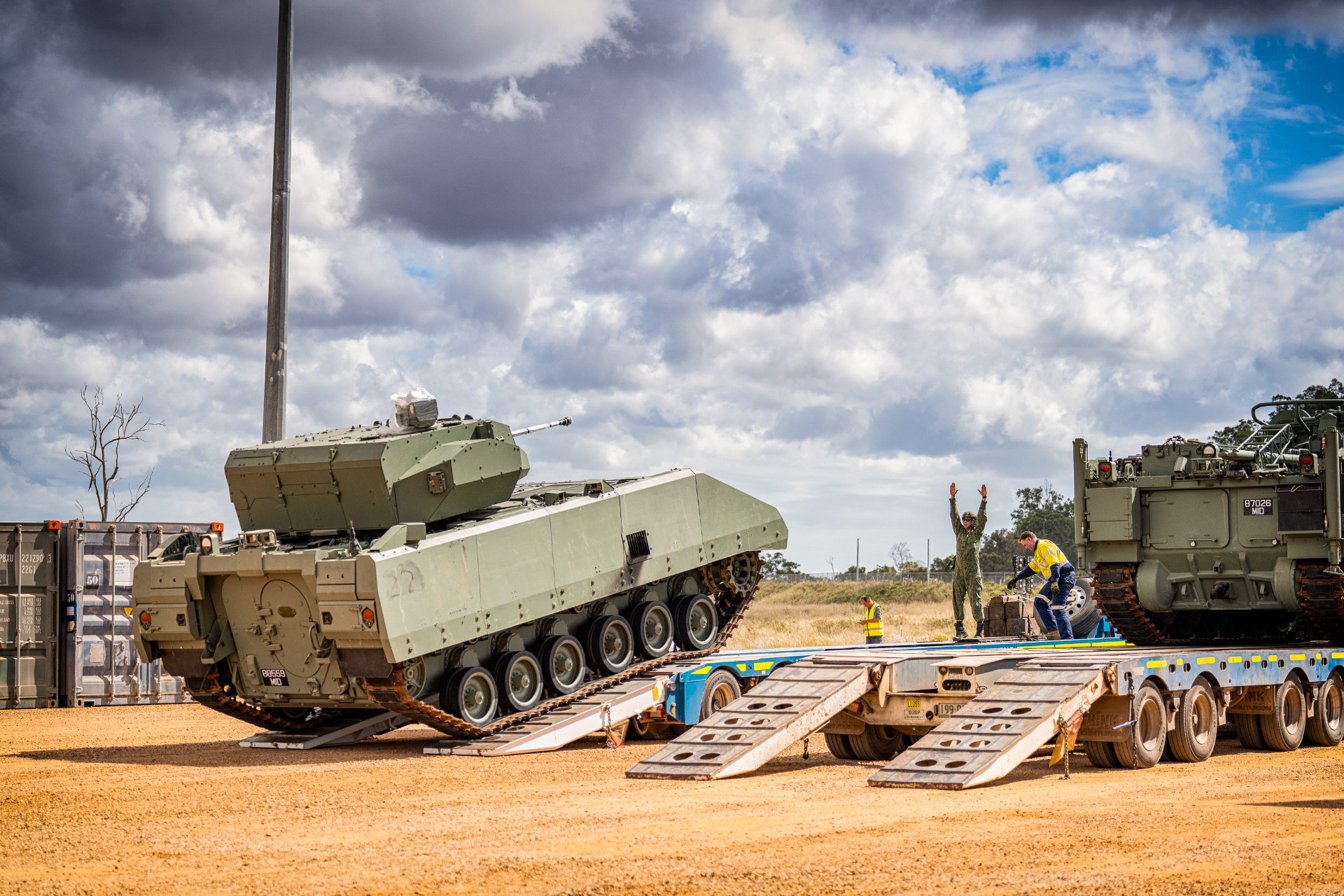
First in, last out at Ex Wallaby 2025
06 Nov 2025
Meet the teams who toil behind the scenes to enable the smooth conduct of the SAF’s biggest unilateral overseas exercise.
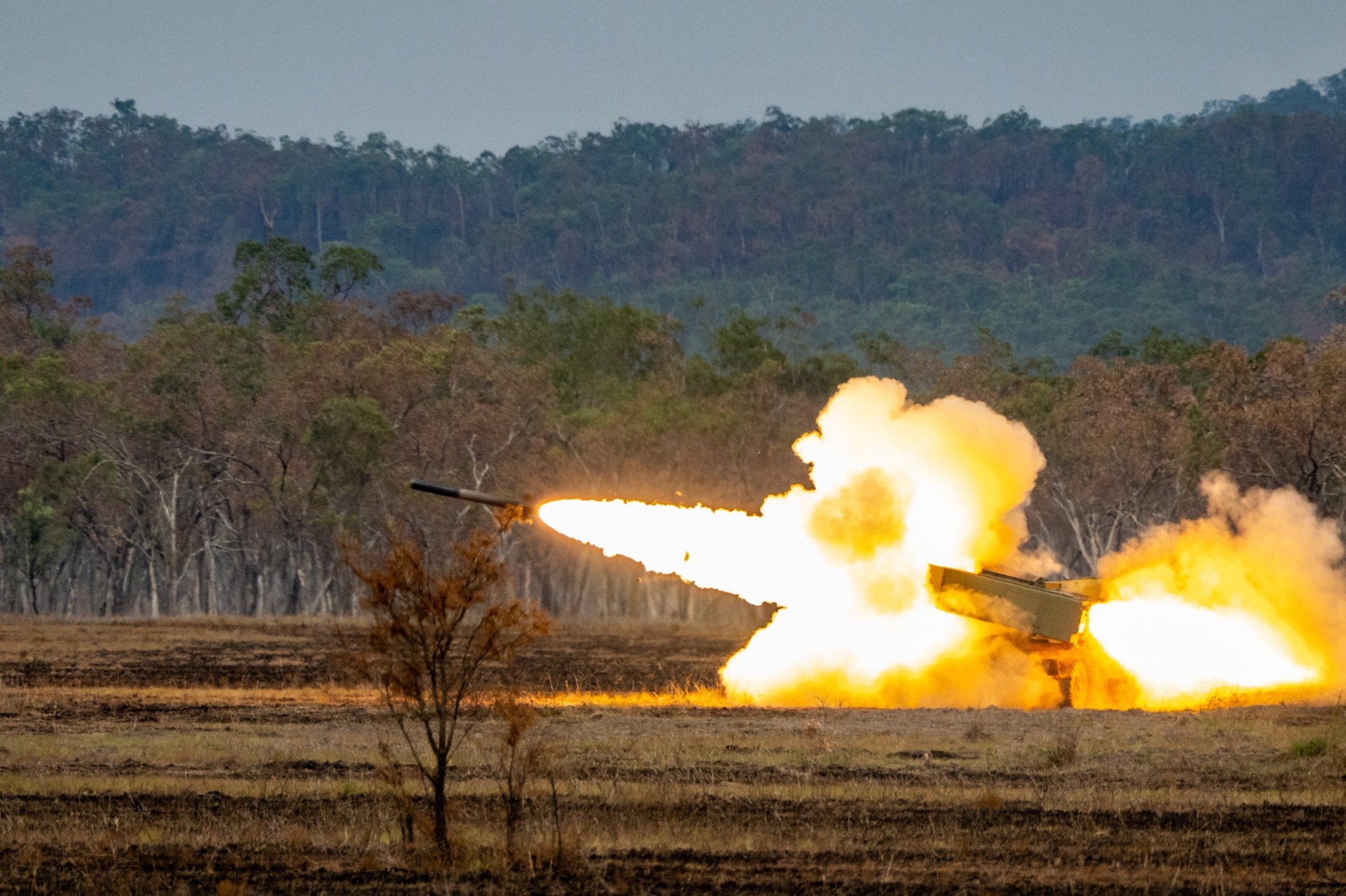
Exercise Wallaby 2025: To see better, shoot faster
31 Oct 2025
The SAF focuses on complex strike missions and multi-domain integration in Exercise Wallaby 2025, the 35th edition of its largest unilateral overseas exercise.
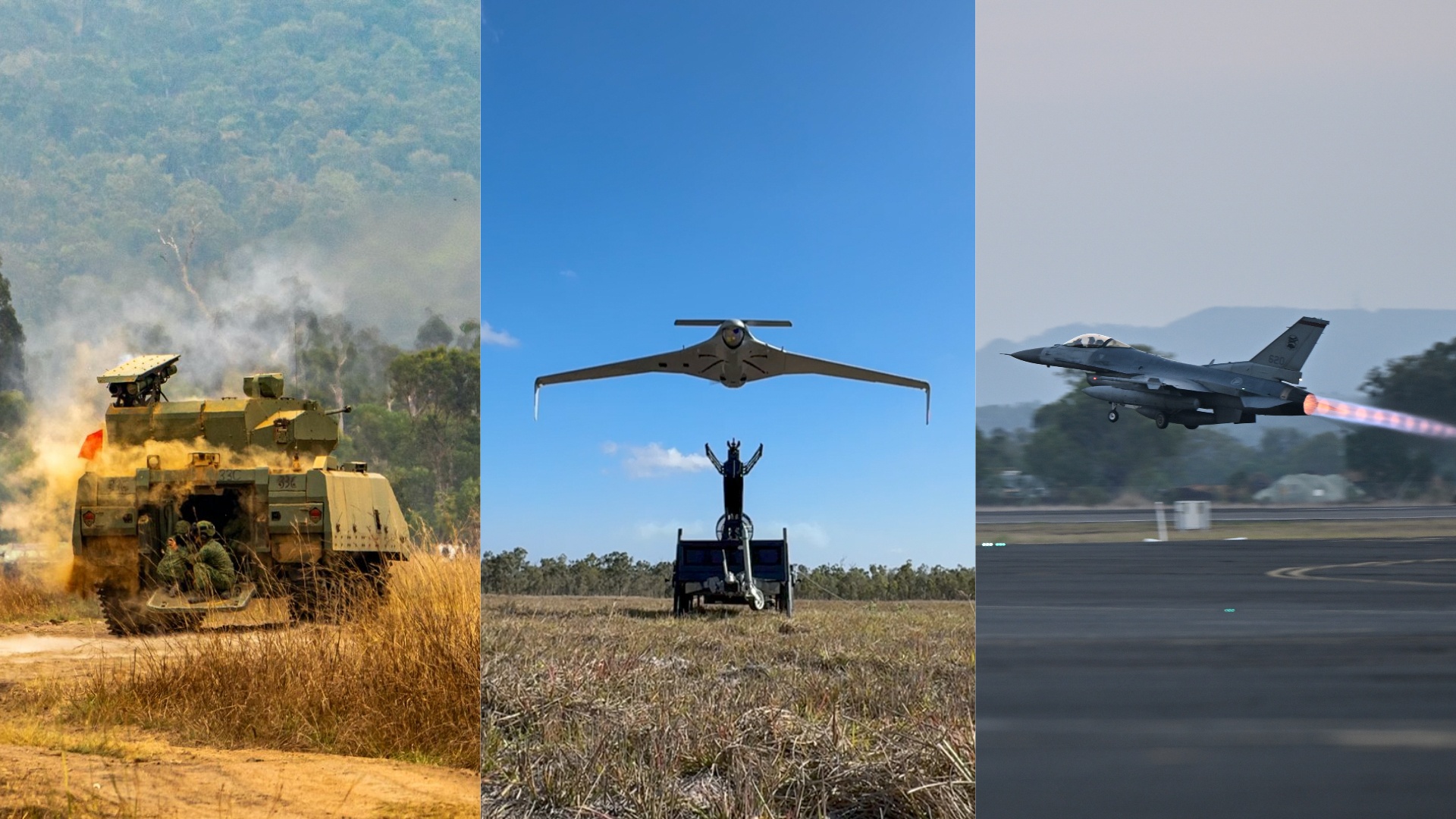
Ex Wallaby 25 – Greater Integration and Complexity
25 Oct 2025
The 35th edition of the SAF’s largest unilateral overseas exercise is an opportunity for expanded scale and deeper integration towards an effective, networked fighting force.

